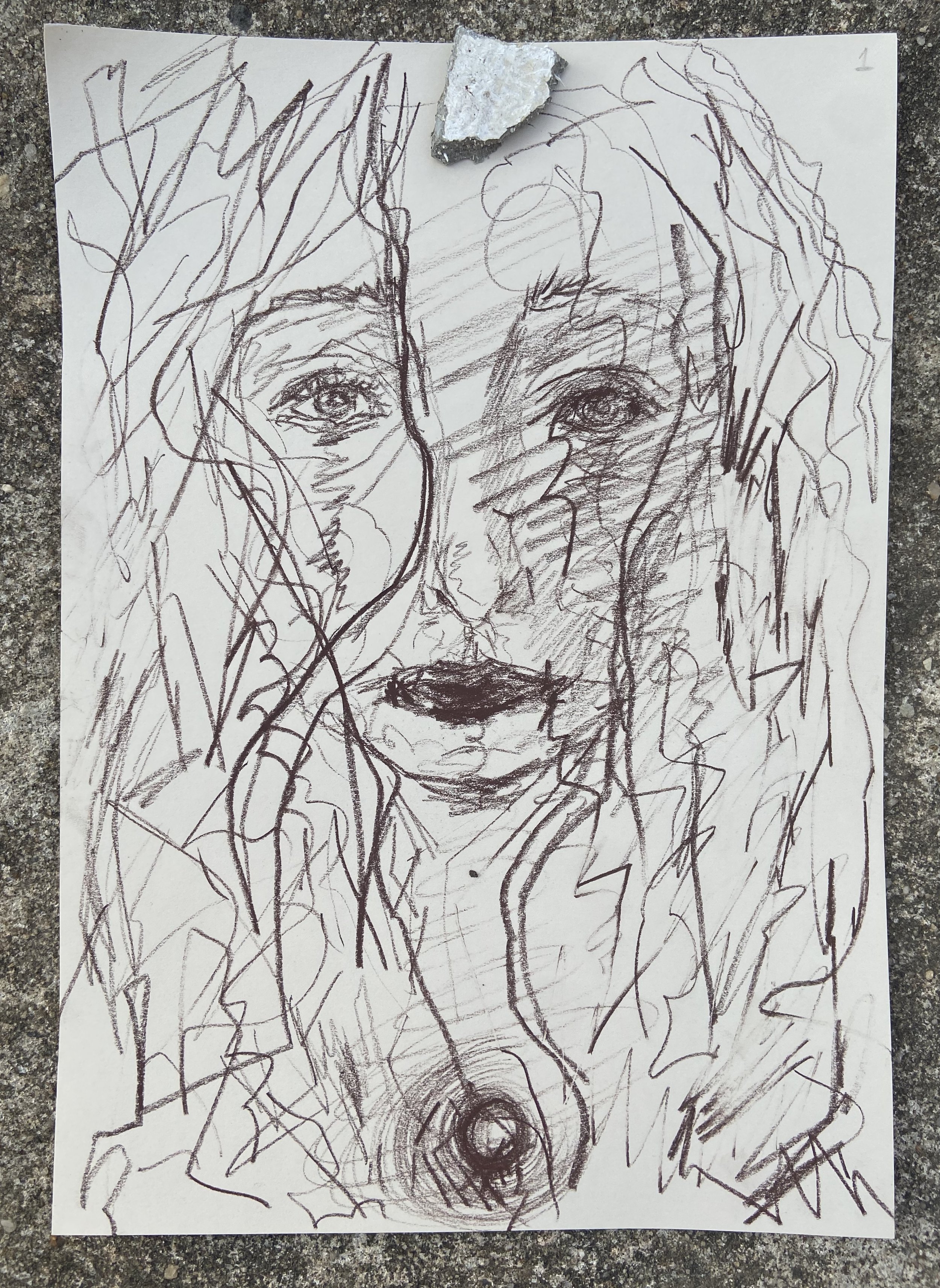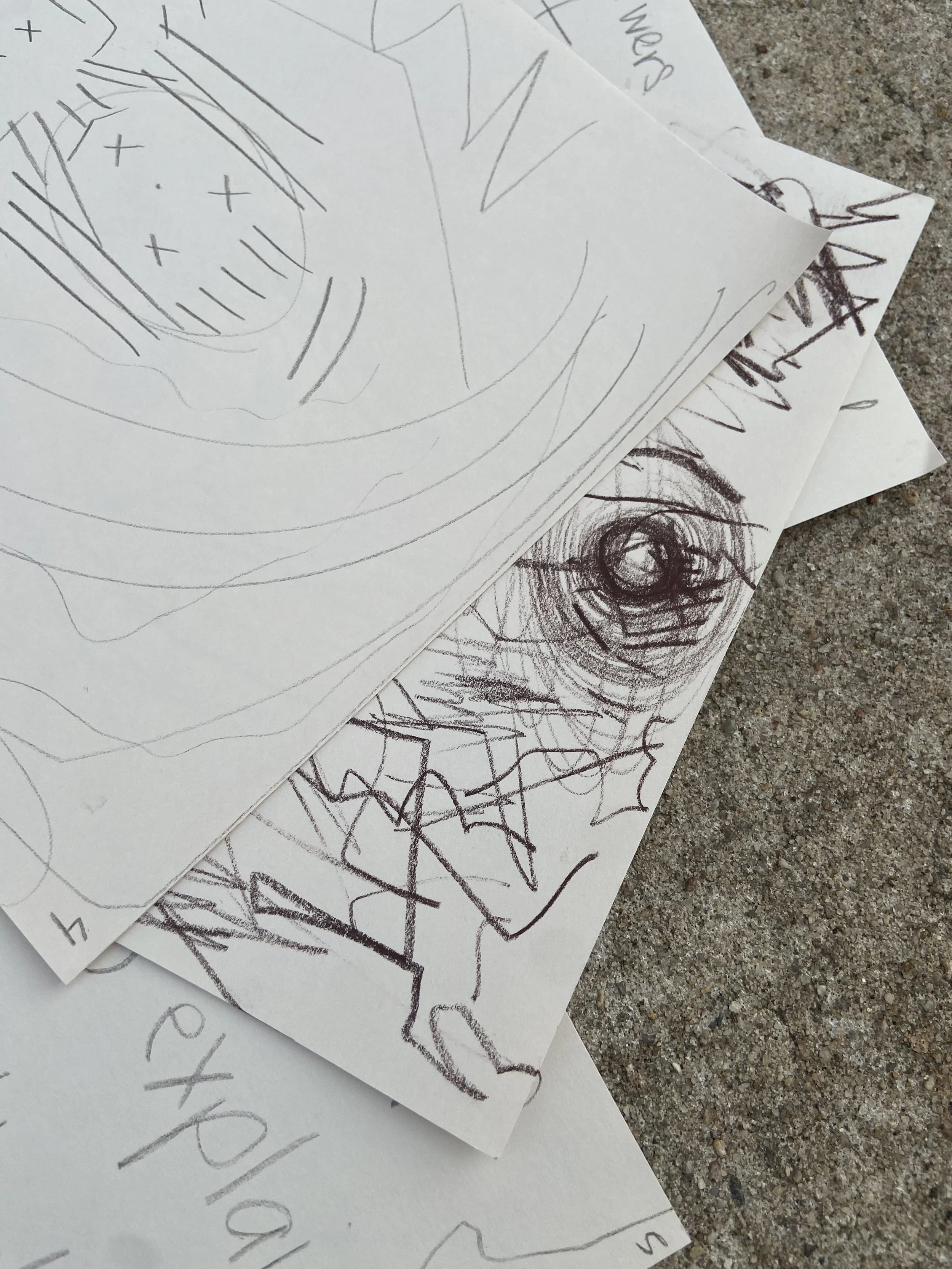
Underneath My Silence … a series of photos of drawings … about … I'm tired of saying, "It's fine." I'm tired of saying, "No worries." I'm tired of smiling when I don't have the words and don't want to be asked about it.
Because the truth is I am okay now. And I feel. I'm okay when I'm grieving. I am okay when I feel sad. I am okay when I'm angry. And when I feel all mixed up and confused. I am a human being. A thinking, feeling, growing, changing human being.
As a child, I was taught that my humanity was a liability. That to show my pain on the outside was to open myself up to misunderstanding, gaslighting, feeling even more alone. That to allow my pain to be seen was akin to embarrassing myself, being shameful.
Every time my body made it clear I was not okay, the message my parents sent was, Just hide it. Just hide like everybody else. Just hide like we did.
Before I was hospitalized for anorexia at 14 years old, I was not okay for years. As a child, I showed many of the signs of being sexually abused: persistent nightmares, bruising, regressive behaviors, changes in eating habits, fear of being alone at night.
I was expressing myself in ways that made sense for my age. And I tried to express myself with my art and writing too. No one heard me. Silence is its own kind of speech. Nightmares are their own kind of communication. Same for changes in the otherwise ordinary: eating, showering, sleeping. I didn't feel heard. I didn't feel seen. And when I tried to make myself heard at home, I was met with rage and immaturity. Calling me disrespectful, ungrateful, naive, idealistic — these were all just ways to silence me even further.
I kept trying to communicate what I was feeling, my needs, my confusion, my story, the fact that I was sexually abused. And my trying led to many more wounds.
This was the truth bound up in my silence. It's not that I didn't want support. It's not that I didn't want the abuse to stop. It's not that I didn't want to be heard, comforted, held, loved, supported. It's that trying to access support had been the prologue to some of my most painful memories. It’s that the people who were supposed to protect me … were my first abusers.
Silence became at once protective and its own kind of pain … its own kind of deprivation.







































